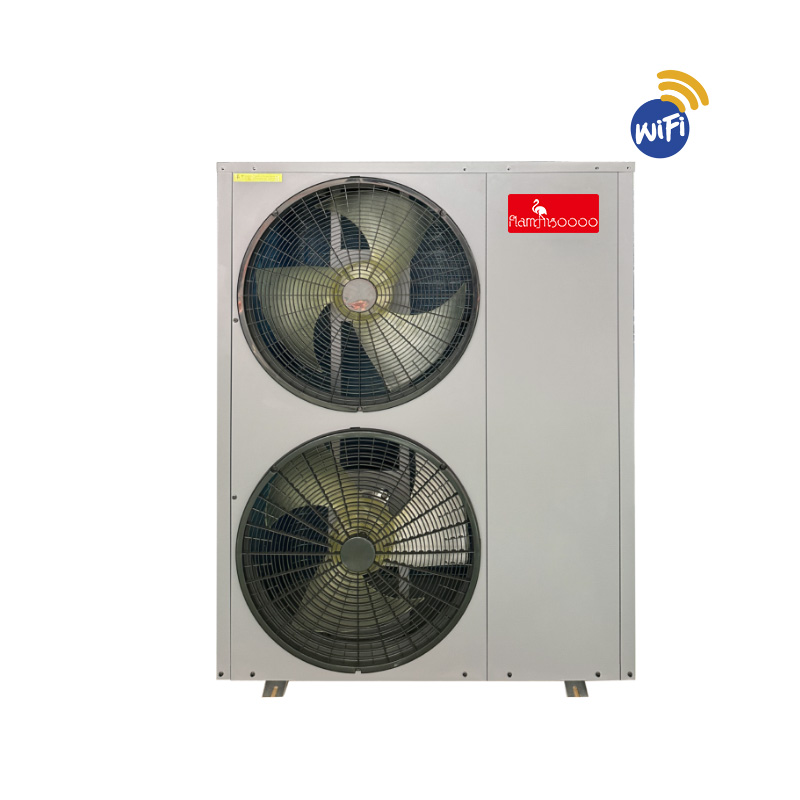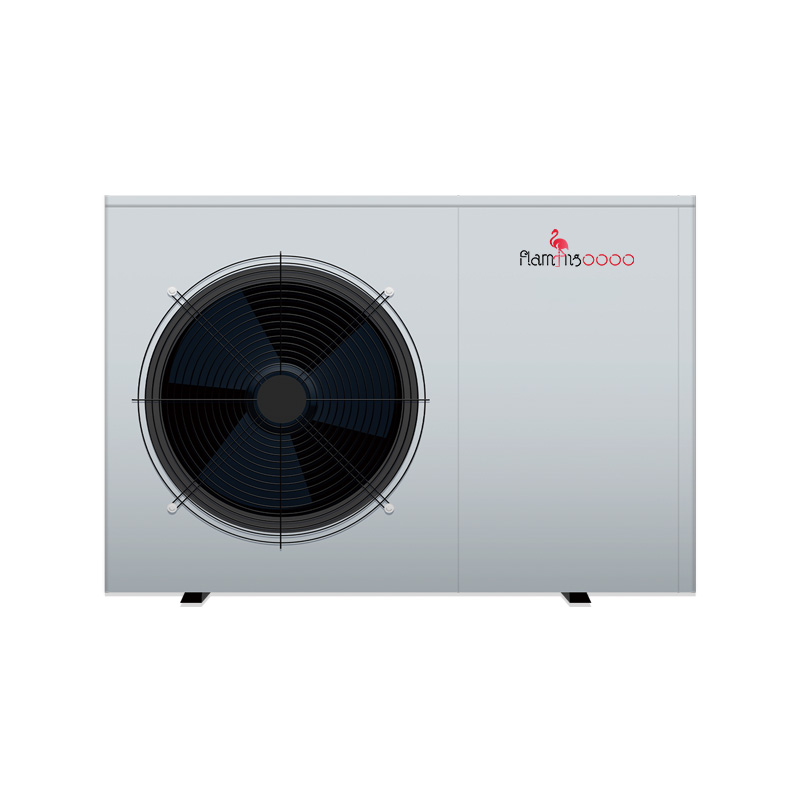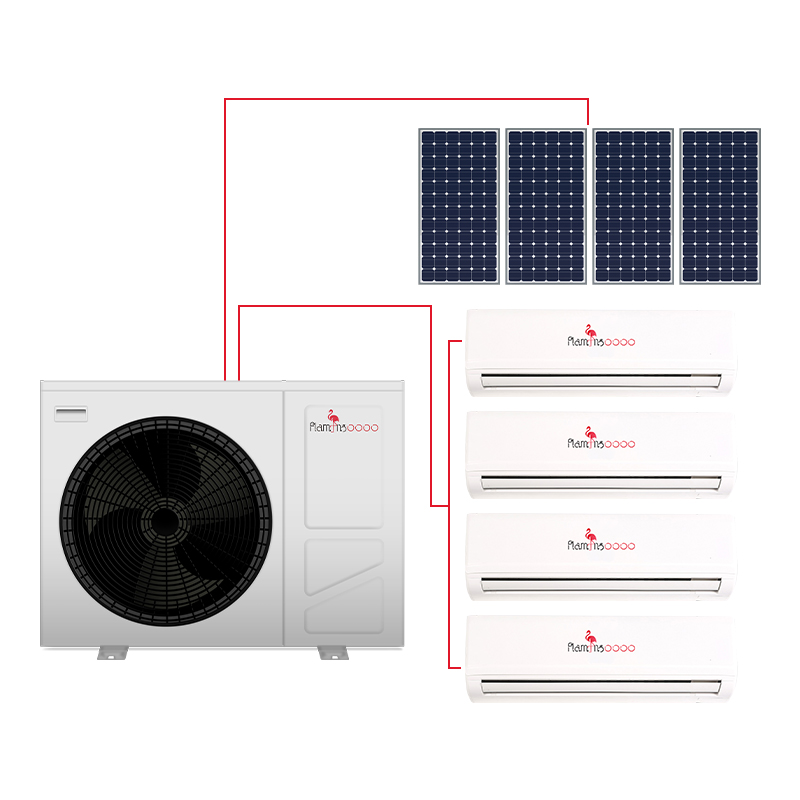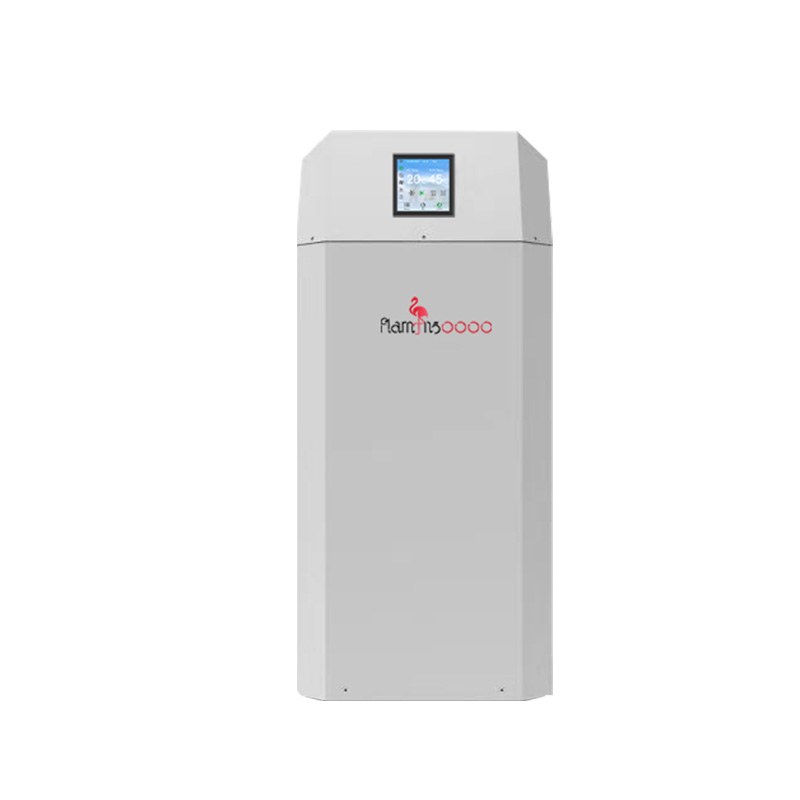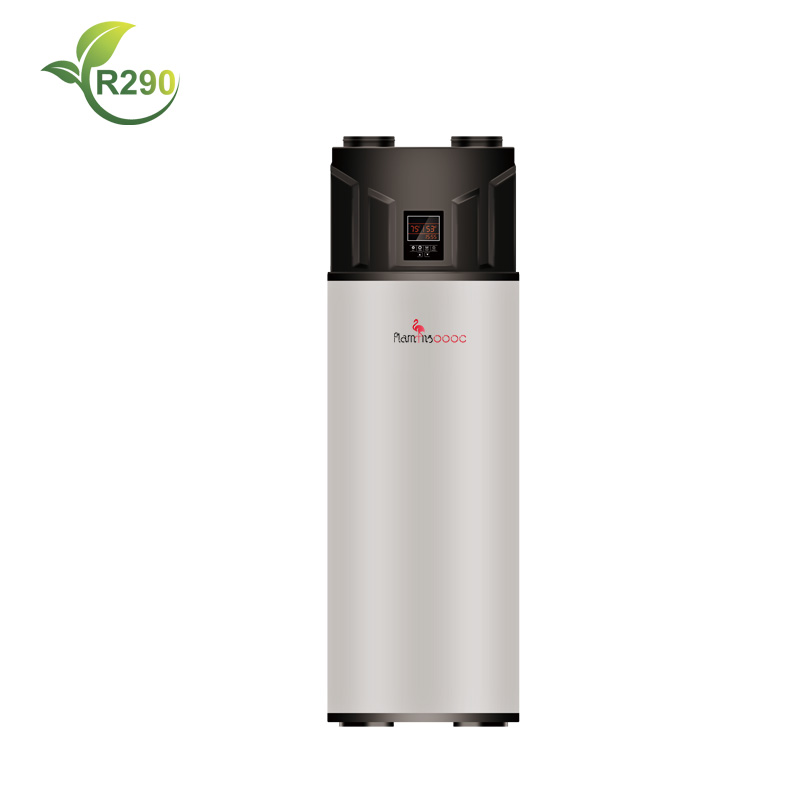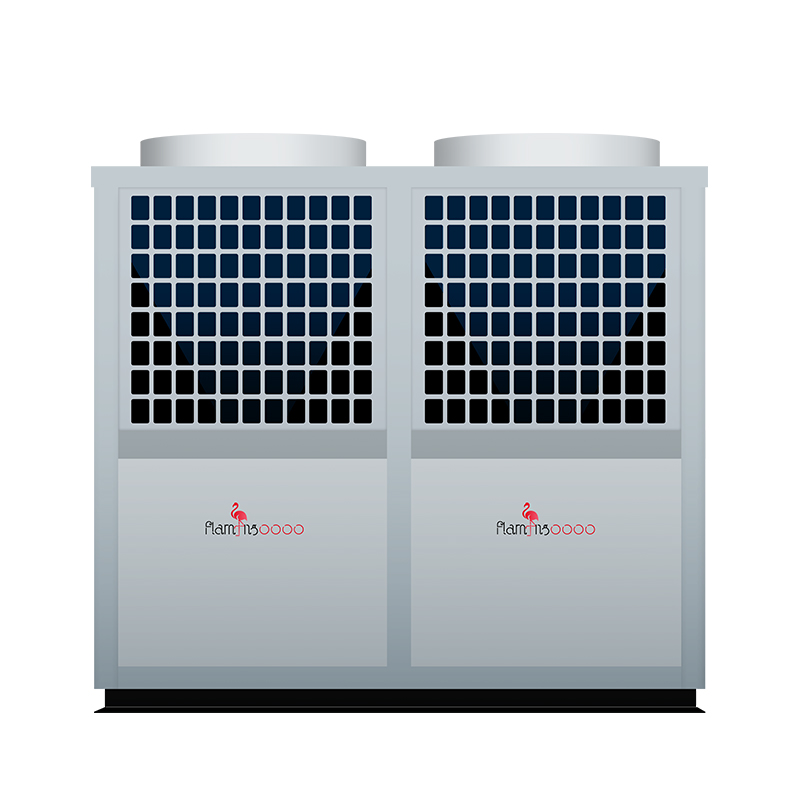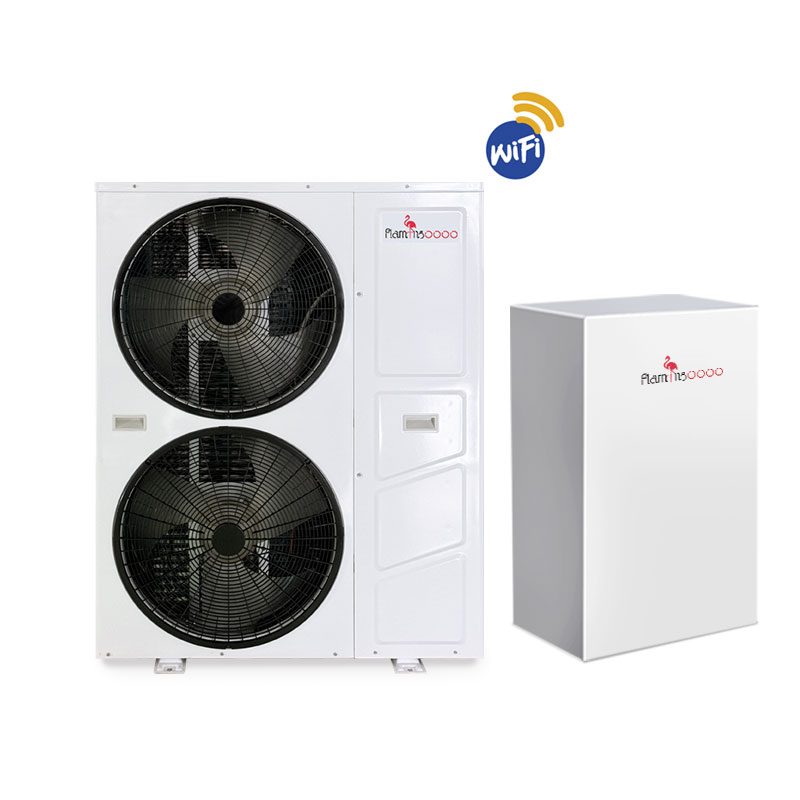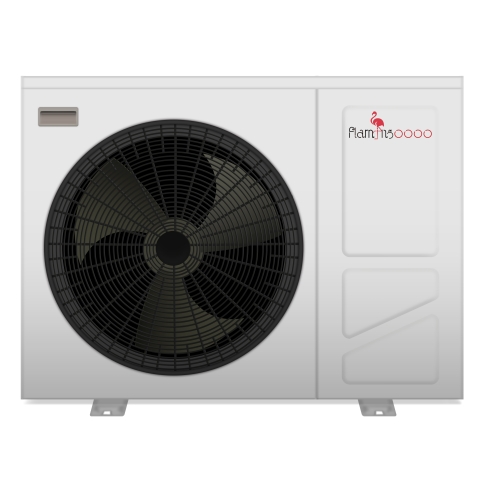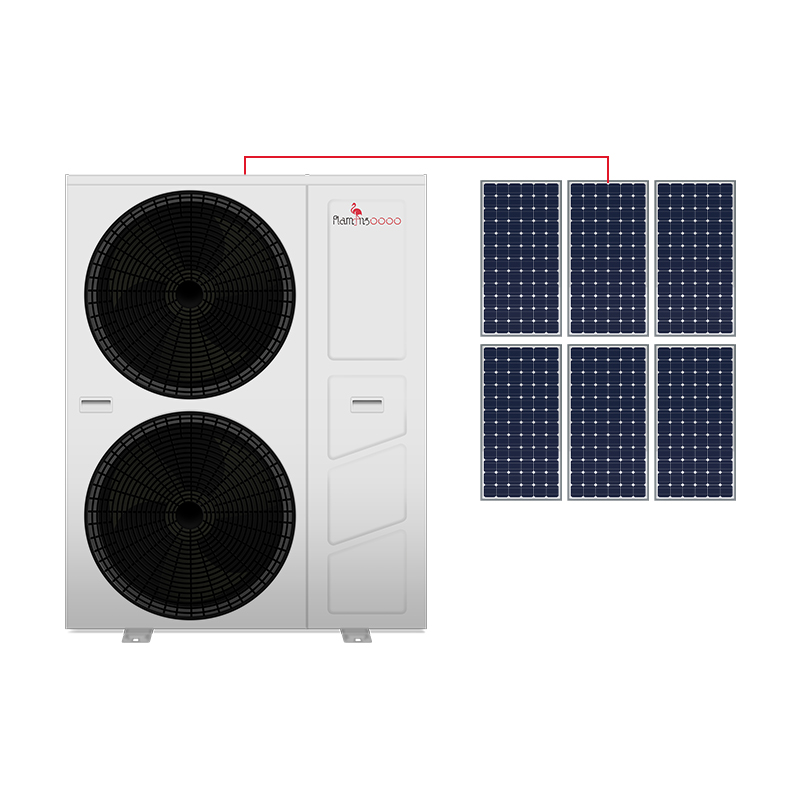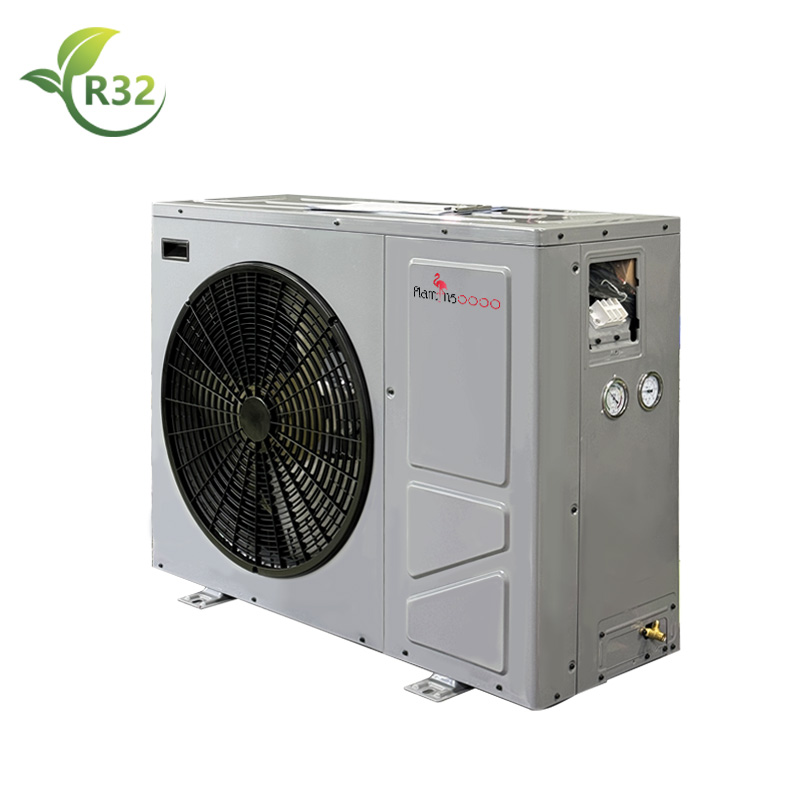Let me break down the types of ground-source heat pump systems and how they work in a straightforward way.
1. Ground-Coupled Heat Pumps (GCHP)
This type of system uses the soil as a heat source in winter and a heat sink in summer. It’s made up of a heat pump unit and a series of pipes buried underground, called the ground heat exchanger. These pipes are usually made of high-density polyethylene or polybutylene. A fluid, typically water or antifreeze, circulates through these pipes, transferring heat between the system and the ground.
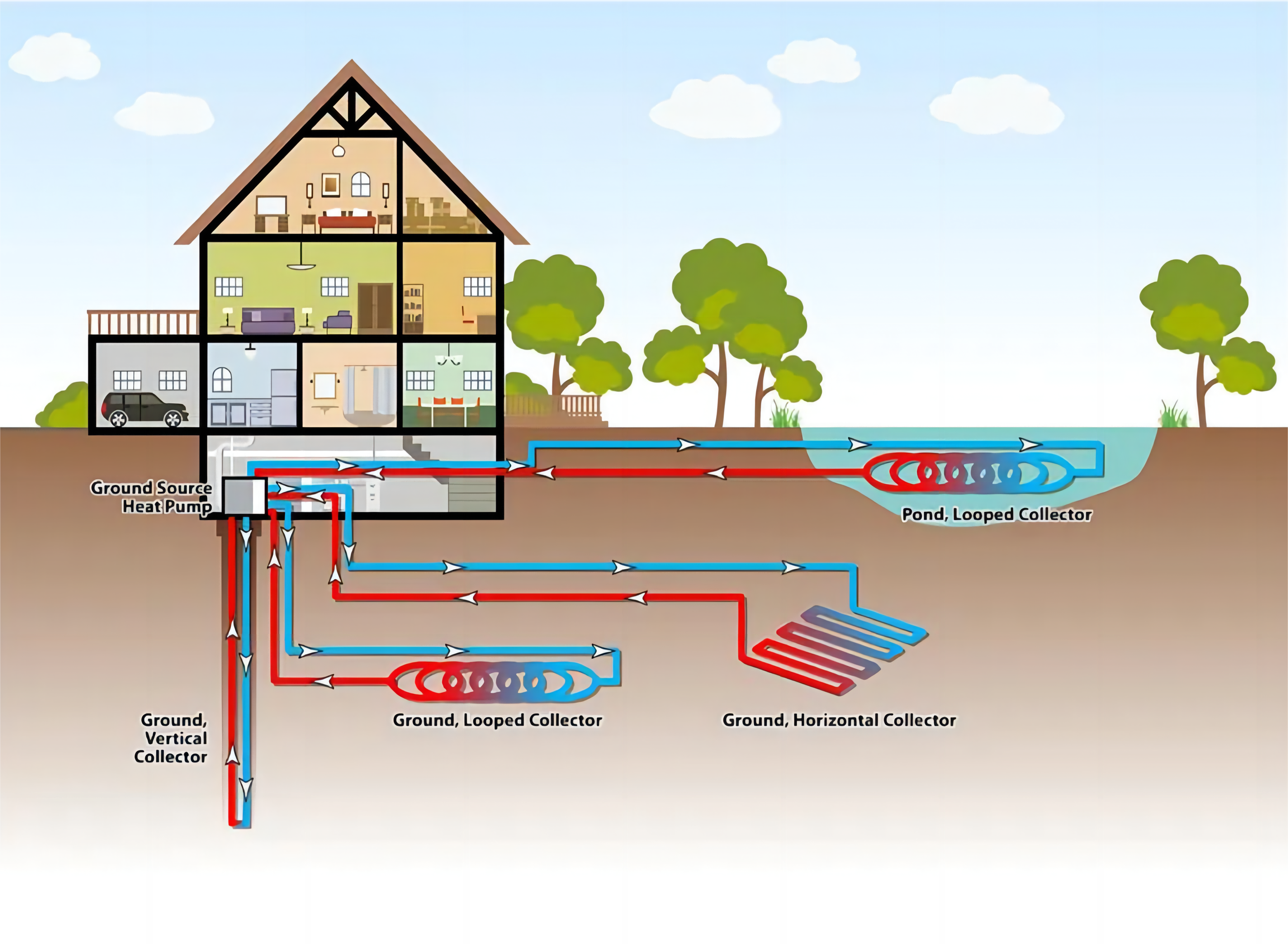
In the winter: The fluid absorbs heat from the ground and carries it to the heat pump, which boosts it to a higher temperature for heating your space.
In the summer: The system reverses, pulling heat from your home and sending it into the cooler ground, keeping your space comfortable.
The key benefit here is that the ground maintains a fairly consistent temperature throughout the year, making this system efficient and reliable. Since it's a closed-loop system, it won’t contaminate the soil, and it has a long lifespan with low maintenance needs.
2. Surface Water Heat Pumps (SWHP)
Surface water heat pumps use bodies of water like lakes, rivers, or ponds as their heat source. The system pulls water from the surface, runs it through a heat exchanger to transfer heat, and then either returns the water or discharges it.
In winter: The pump extracts heat from the water to warm your home.
In summer: It works the other way, moving excess heat from your home into the water to cool things down.
These systems are very efficient, especially if you live near a large body of water. However, they require access to open water and work best when the water quality is good.
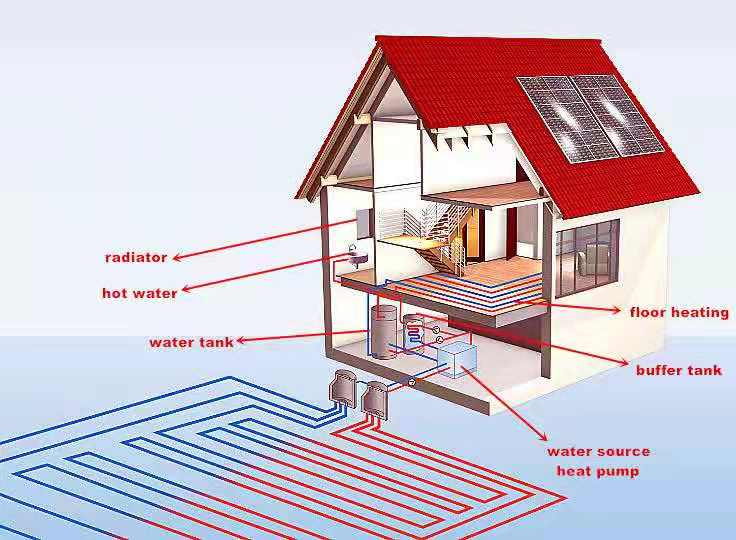
3. Groundwater Heat Pumps (GWHP)
Groundwater heat pumps draw heat directly from groundwater. Wells are drilled to access this water, which is pumped up, passed through a heat exchanger to transfer heat, and then returned underground.
In winter: The system absorbs heat from the groundwater to warm your home.
In summer: It does the opposite, transferring the heat from your home into the groundwater.
Groundwater systems are efficient because groundwater temperatures remain relatively stable. But they do require a good supply of quality groundwater, and drilling wells can be costly.
To Sum It Up
Each type of ground-source heat pump system has its advantages, depending on your environment. If you have a large area of land, the ground-coupled system might be best. If you're near a body of water, a surface water system could be ideal. And if you have access to stable groundwater, then a groundwater heat pump system could be the way to go. All of these options offer efficient and eco-friendly ways to heat and cool your space by tapping into the natural energy stored in the earth.

